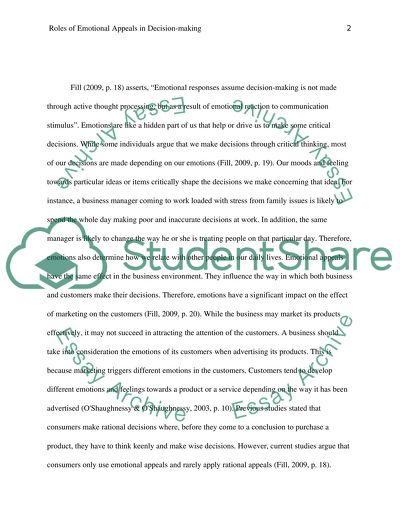Cite this document
(“Roles of Emotional Appeals in Decision-making Essay”, n.d.)
Retrieved from https://studentshare.org/marketing/1478796-title-fill
Retrieved from https://studentshare.org/marketing/1478796-title-fill
(Roles of Emotional Appeals in Decision-Making Essay)
https://studentshare.org/marketing/1478796-title-fill.
https://studentshare.org/marketing/1478796-title-fill.
“Roles of Emotional Appeals in Decision-Making Essay”, n.d. https://studentshare.org/marketing/1478796-title-fill.


